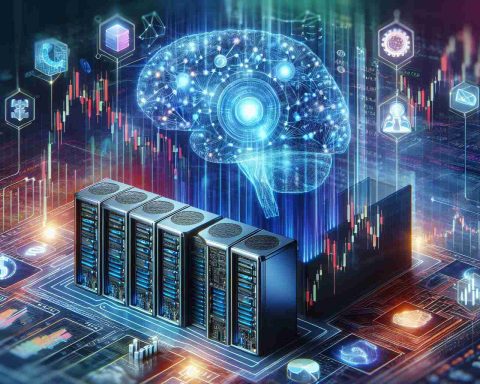As discussions on artificial intelligence (AI) expand, many are questioning its influence on society and culture. A recent initiative has catalyzed interest, unveiling the potential integration of AI into cultural databases. The intriguing facet of AI is its quest to address fundamental questions about human existence, a pursuit that entices many researchers.
This technology, while powerful, relies heavily on human input and curation. Machines excel in statistical analysis but lack the emotional depth intrinsic to human creativity, particularly in fields like art. Humans are pivotal in AI’s existence, offering insights, creativity, and unique thought processes that machines can only mimic.
A new project focusing on the JókAI Lab aims to harness AI to explore and analyze vast cultural data. The initiative acknowledges the challenge of integrating diversified and previously siloed data from various institutions. Moving forward, the lab’s approach will not only enhance accessibility for researchers and educators but also illuminate the rich cultural heritage that can be examined through AI.
Moreover, ethical considerations are paramount. Stakeholders emphasize the importance of responsible AI development, underlining that ethical frameworks must evolve alongside technology. Awareness of AI’s transformative power is growing, but there’s a pressing need to cultivate a constructive relationship with such innovations.
As society adapts, the role of educators and regulators becomes crucial in navigating this new landscape. Ultimately, the goal is to make AI a valuable tool that serves humanity, enhancing our understanding of culture and history.
The Emergence of AI in Cultural Research: Opportunities and Challenges
The integration of artificial intelligence (AI) into cultural research is emerging as a dynamic field that promises to reshape our understanding of history, art, and societal trends. As technology progresses, several new opportunities and challenges arise, which are crucial for researchers, educators, and policymakers to consider.
Key Questions Facing AI in Cultural Research
1. How can AI improve the accessibility of cultural heritage?
AI systems can analyze and digitize vast amounts of cultural artifacts, documents, and artworks, making them accessible to a wider audience. By creating metadata and facilitating search functions, AI tools can enhance the discoverability of cultural resources.
2. What roles do ethics and bias play in AI applications within the cultural sector?
The algorithms used in AI systems can perpetuate biases present in their training data, leading to skewed representations of culture and history. Continuous evaluation of AI processes is necessary to mitigate these biases and ensure diverse cultural narratives are represented accurately.
3. In what ways can AI aid in the preservation of endangered cultural practices?
AI technologies, such as machine learning models, can be utilized to document and analyze dialects or traditional practices at risk of disappearing. This preservation effort allows future generations to explore and understand the richness of their cultural heritage.
Key Challenges and Controversies
Despite its potential, the application of AI in cultural research is not without its challenges. Key issues include:
– Data Privacy and Ownership: The use of cultural data raises questions about ownership and consent. Artists, researchers, and cultural institutions must navigate the complexities of copyright and intellectual property rights.
– Dependence on Technology: There is a concern that over-reliance on AI may lead to a decline in traditional research methodologies and critical thinking skills among scholars and students, as they might lean more on algorithms rather than developing their analytical abilities.
– Cultural Appropriation Risks: As AI sometimes aggregates and categorizes cultural data without understanding the context, there is a risk of cultural appropriation, where elements of a culture are used without acknowledgment or respect.
Advantages of AI in Cultural Research
1. Efficiency and Scale: AI can process and analyze data at an unprecedented scale and speed, allowing researchers to uncover patterns or insights that would be impractical through manual analysis.
2. Interdisciplinary Collaboration: AI fosters collaboration between fields such as anthropology, mathematics, and computer sciences, creating innovative approaches to cultural inquiry that incorporate diverse perspectives.
3. Enhanced User Engagement: Through interactive AI applications, cultural institutions can offer personalized experiences for visitors, such as tailored exhibitions that adapt to individual interests.
Disadvantages of AI in Cultural Research
1. Loss of Human Touch: While AI can analyze data, the emotional and subjective aspects of human culture may be lost, diminishing the richness of cultural interpretation and experience.
2. Challenges in Interpretation: AI systems lack the contextual understanding that human researchers possess, leading to potential misinterpretations of cultural phenomena.
3. Funding and Resource Allocation: Investing in AI technologies may divert funds from traditional cultural preservation efforts, potentially undermining grassroots projects that preserve local culture.
Moving Forward
As AI continues to make inroads into cultural research, it is vital to foster an environment that prioritizes ethical practices and inclusivity in representation. Educators, researchers, and policymakers must collaborate to create frameworks that guide the responsible use of AI technologies while preserving the heart of human culture.
For additional insights into the impact of AI on culture, visit The National Endowment for the Arts.

















